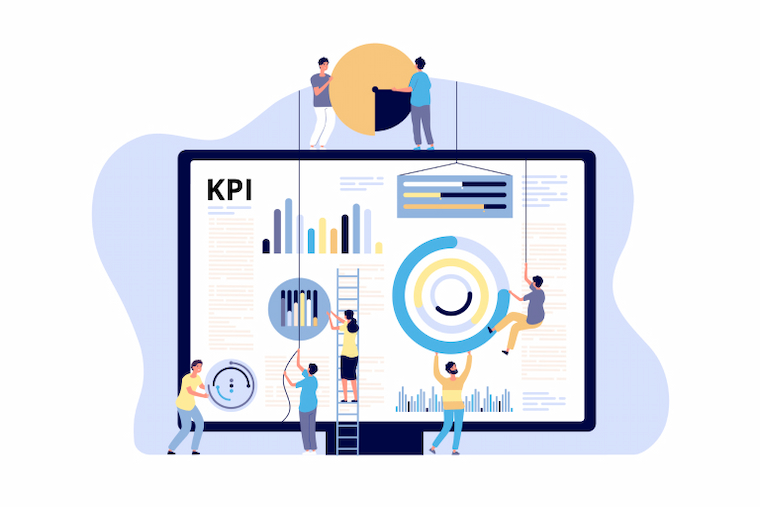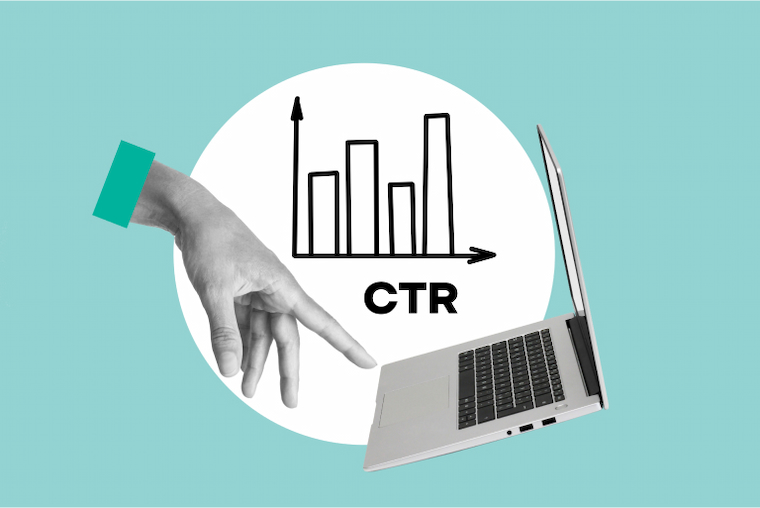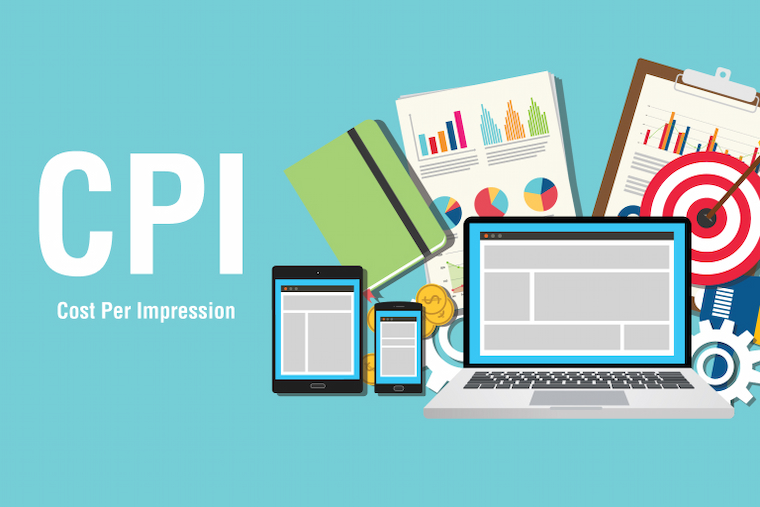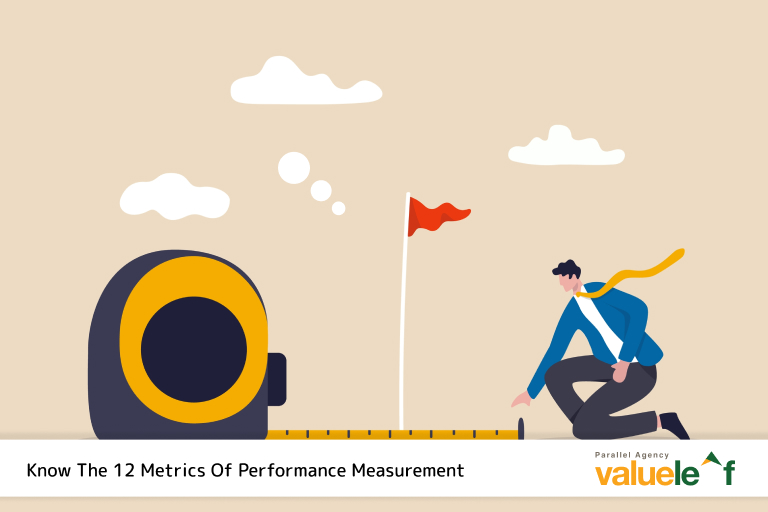What gets measured in a business gets managed and improved. When key performance metrics are closely tracked and monitored, you catch the issues early and make adjustments to keep the business on target. Measuring performance also provides clarity on where resources should be focused for optimal strategy execution. Deciding what to measure and implementing strong metrics are crucial to actively manage a business for success. Let’s get to know the 12 digital marketing metrics and KPIs and tools you need to measure, track, and analyze your performance.
First Of All, What is Digital Marketing KPI?
Digital Marketing KPIs, or Key Performance Indicators, are quantifiable measurements that help you track and assess the success of your digital marketing campaigns. They offer valuable insights into how well your efforts are achieving your overall marketing goals.
Choosing the right KPIs depends on your individual goals and marketing channels. The key is to track metrics that align directly with your desired outcomes.
12 Essential Digital Marketing Metrics & KPIs
Success in marketing depends on the ability to understand and utilize data effectively. With countless channels, strategies, and plans available, businesses must learn how to reach their target audiences and achieve their objectives. That’s why we need digital marketing KPIs.

Let’s take a look at the 12 essential digital marketing metrics and KPIs.
Traffic Sources
Analyzing traffic sources shows which channels are driving the most visitors and your campaign effectiveness across different platforms.
- Metrics: Organic traffic, paid traffic, referral traffic, direct traffic.
- KPIs: Assess which channels are driving the most valuable visitors, optimize campaigns for specific sources, and allocate resources effectively.
- Tools: Google Analytics, UTM parameters, SEMrush, Ahrefs.
Conversion Rate
Conversion Rate in digital marketing measures the percentage of visitors who complete a desired action, like subscribing, making a purchase, or downloading content.
- Metrics: Number of desired actions taken, e.g., leads generated, purchases made, newsletter signups.
- KPIs: Measure overall campaign effectiveness, identify high-converting content and offers, and optimize for better performance.
- Tools: Google Analytics, marketing automation platforms like HubSpot, Salesforce Marketing Cloud.
Website Traffic

Website traffic shows the total number of visitors your website attracts within a specific time. It gives you an idea of your reach and helps identify website health and any potential issues.
- Metric: Total website visits, unique visitors, page views, average time on site, bounce rate.
- KPIs: Track changes in overall traffic, identify high-performing pages, understand user engagement, and diagnose website usability issues.
- Tools: Google Analytics, Similarweb, Hotjar.
Engagement Rate
This digital metric tracks likes, shares, comments, clicks, and other interactions across your social media platforms and email campaigns.
- Metrics: Number of likes, shares, comments, clicks, and other interactions.
- KPIs: Compare your engagement rate to the industry average, Set specific target engagement rates for each campaign, and track how your engagement rate changes over time.
- Tools: Social media analytics platforms, third-party analytics tools, and engagement calculators.
Click-Through Rate (CTR)
Track the percentage of recipients who click on your links. A high CTR suggests compelling subject lines and relevant content.

- Metric: Percentage of people who click on your links in emails, ads, or social media posts.
- KPIs: Gauge the effectiveness of your calls to action (CTAs), assess ad copy and targeting, and improve engagement across platforms.
- Tools: Email marketing platforms (e.g., Mailchimp, Constant Contact), Google Ads, Facebook Ads Manager.
Return on Investment (ROI)
ROI shows the financial benefit of your digital marketing efforts.
- Metric: Net profit generated from your marketing efforts compared to the investment.
- KPIs: Evaluate the overall financial performance of your digital marketing, make informed budget decisions, and prioritize high-ROI initiatives.
- Tools: Marketing attribution platforms, and custom dashboards in Google Analytics.
Cost per Acquisition (CPA)
Cost per acquisition in digital marketing represents the total cost to acquire a new customer, covering marketing and sales expenses.
- Metric: Average cost to acquire a new customer.
- KPIs: Analyze the efficiency of customer acquisition efforts, compare channels, and optimize campaigns for lower acquisition costs.
- Tools: Google Analytics, marketing automation platforms, attribution platforms.
Cost per Lead (CPL)
Cost per Lead in digital marketing is a crucial metric for measuring the efficiency of your marketing campaigns in generating leads.
- Metric: Total leads generated, total campaign cost, conversion rate of leads to customers, average customer lifetime value.
- KPIs: Track campaign performance and measure CPL, Manage leads, and analyze quality & conversion, and track & measure ROI from leads to sales.
- Tools: CRM systems, lead management software, and marketing Analytics Platforms.
Customer Lifetime Value (CLV)
CLV predicts the total revenue a customer generates throughout their relationship with your brand.
- Metric: Total revenue a customer generates throughout their relationship with your brand.
- KPIs: Understand the long-term value of your customers, identify strategies for customer retention, and optimize campaigns for higher profitability.
- Tools: CRM systems, and data analysis platforms like Mixpanel, and Amplitude.
Cost per impression (CPI)

- Metric: CPI itself! Cost per 1,000 impressions (total ad spend/impressions * 1,000).
- KPIs: Track CPI trends over time, compare across campaigns/platforms, and benchmark against industry standards.
- Tools: Most ad platforms & analytics tools provide built-in CPI reporting.
Search Engine Optimization (SEO) Metrics
- Metrics: Organic website traffic, keyword rankings, backlinks, domain authority.
- KPIs: Track progress towards ranking goals, identify areas for improvement, and optimize your website for better organic visibility.
- Tools: Google Search Console, SEMrush, Ahrefs, Moz.
Email Marketing Metrics
- Metrics: Open rates, click-through rates, unsubscribe rates, conversion rates for email campaigns.
- KPIs: Evaluate the effectiveness of your email marketing efforts, segment your audience effectively, and create more engaging and impactful campaigns.
- Tools: Email marketing platforms, and email deliverability tools like SenderScore, and MailboxValidator.
To Conclude,
Data offers valuable insights for strategy.
Tracking and analyzing the key performance indicators about your audience, campaign results, and business impact gives a clear picture of your digital marketing efforts. Regularly monitoring these digital metrics helps spot important patterns and trends.
With a data-driven strategy centred on key metrics, digital marketers can make informed decisions to maximize audience engagement, conversion rates, and ROI while building meaningful connections. Start measuring and keep improving!
Frequently Asked Questions
Q. What are the KPI used in digital marketing?
A. Digital marketing KPIs fall into 5 main categories: lead generation, website traffic, SEO, paid advertising, and social media.
Q. What is the difference between metrics and KPI in digital marketing?
A. Both metrics and KPIs are measurements, but metrics include website visits and follower count. And KPIs include revenue growth and market share increase.
Q. What is ROI and KPI in digital marketing?
A. ROI tells you how much profit you earn from your digital marketing spend, while KPIs track specific metrics that show how well your campaigns are performing.
Q. What are digital marketing metrics?
A. Digital marketing metrics are quantifiable data points used to track and analyze the effectiveness of your online marketing efforts.
Q. Is ROI a metric or KPI?
A. ROI (Return on Investment) is both a metric and a KPI (Key Performance Indicator).
Q. What is KPI in SEO?
A. SEO KPIs (Key Performance Indicators) are measurable values that track the success of your search engine optimization efforts.




